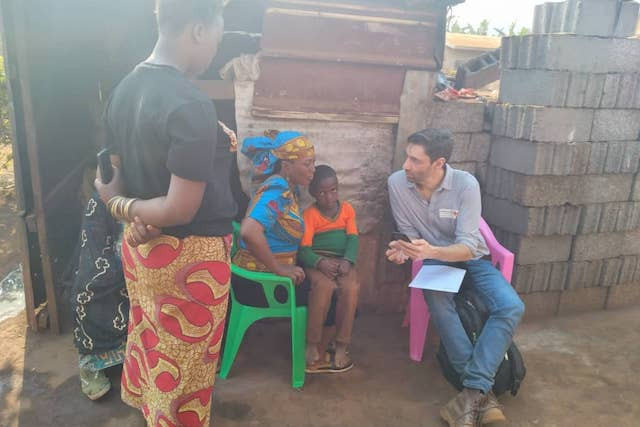The team abroad currently counts just under 15 in the field in Africa--from Nigeria and Mali, to Burkina-Faso and Madagascar--but also in Nepal and Ukraine.
“At the beginning of the pandemic, we had to decide whether or not to repatriate our teams,” Fabbri told Delano. “We were fully aware that humanitarian flights would stop and that our decision would have serious consequences for the months to come.” He adds that assignments abroad were reviewed with each of their expatriates on a case-by-case basis, but that ultimately around 75% of the team abroad opted to stay put.
Nevertheless, a number of measures were put in place to keep them safe. This included, of course, sanitary gestures similar to those seen in the grand duchy--hand-washing or -disinfecting, mask wearing, etc., but additional measures available to support them psychologically. “We…confirmed that our insurance could provide health repatriation for all of our expatriates,” Fabbri explained. “We also made psychological support available to those who [wanted it], and we strengthened our regular contacts.”
Being away from family and “the period of confinement has been very hard for many of them” but “I’m very proud of my team,” Fabbri added.
Worsening of conditions anticipated
While its activities abroad have slowed down in light of covid-19, the Luxembourg Red Cross saw a number of areas where services could merely be adapted to help the situation. The organisation normally helps protect the most vulnerable individuals in the aforementioned locations which often includes those who are elderly or immune-compromised, for example--people who could also be most at threat of difficulty with the virus.
Already, the Luxembourg Red Cross had been building structures such as basic living accomodations, latrines and emergency shelters so that people could live safely and healthily.
“Since the arrival of covid in Africa,” Fabbri added, “we have had to review all our approaches to the construction and distribution of non-food items.” It has also worked alongside other Red Cross national societies to improve sanitation in light of the pandemic, setting up remote temperature-taking capabilities, hand-washing stations, and so on.

A handwashing station in Niamey, Niger, taken in June 2020 Photo: Luxembourg Red Cross
The on-the-ground situation in Africa and the means (and testing measures) for dealing with the virus vary vastly from country to country, so “it is very difficult to have a true vision of the pandemic”, also in part due to “the number of refugees and returnees in some African countries”, which can further cloud the statistics. And, while Fabbri added that while some countries which have already dealt with outbreaks in the past (Ebola, for example) may have “good reflexes” to deal with covid-19, in other cases people just see “that [it] is a part of life and consider it inevitable and therefore do not protect themselves or only a little. This is why awareness is fundamental.”
Fabbri said the risks are likely to increase, however, with the approaching rainy seasons in many of their countries of operation. “These rains will lead to degraded sanitary conditions and it will be all the more important to provide shelter to the most vulnerable people. In some areas, armed conflicts, cyclones and floods will also occur.”
Despite their efforts, Fabbri said private contributions are “becoming a real problem for us. Most of our fundraising campaigns…had to be cancelled.”
Panzi Hospital plans
As for plans ahead? The Luxembourg Red Cross had been supporting the extension and modernisation of the Panzi Hospital, started by Nobel laureate Dr Denis Mukwege, based in Bakavu in the Democratic Republic of the Congo.
As Fabbri explained, the necessary funds were raised to build a new hospital which should eventually be able to accommodate some 700 patients--good news, given that there are more than 500 female victims but only 123 beds.
The works will help support the four pillars around which Mukwege has centred his work--not just physical healing for survivors of sexual violence, but also emotional recovery, rebuilding livelihoods and a sustainable approach to restoring communities. Fabbri told Delano, “As soon as flights are possible again, I am going with a team to Bukavu to initiate this project.”
